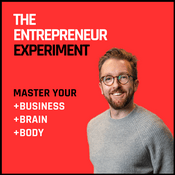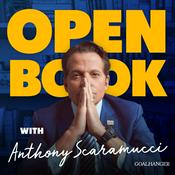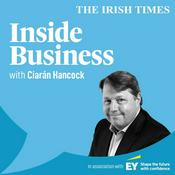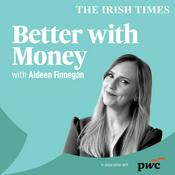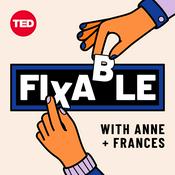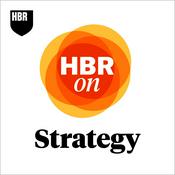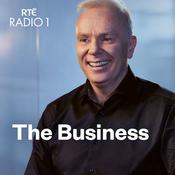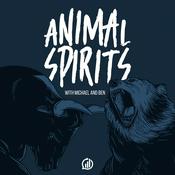223 episodes
- Juniors in Research Management – Between Research and Support
Leaving research, identity, skills and the job market reality
Check out the episode website
In this episode I’m joined by Marina Kliuchko, who has done “everything right” in research – biology degree, PhD in psychology/brain science, several postdocs and big collaborative projects – and is now in a transition towards research support and administration. We talk about the moment of realisation that the classic professorship track didn’t actually feel attractive, even though everyone around her assumed it was the only logical next step. Marina describes the doubts that followed (“is there something wrong with me as a scientist?”), the conservatism of the academic ladder, and the feeling of running up a hill without ever stopping to ask whether this is really where she wants to go.
From there, we move into the world of juniors in research management: what it means to prefer a supporting role, to enjoy turning other people’s ideas into concrete tasks, and then to meet a job market where hiring panels worry she’ll be bored or “run back to research”. Marina shares honestly how rejections hurt, how lonely the process can be, and what has helped her hold on: soft-skill and entrepreneurship bootcamps, mentoring conversations, trying out funding strategy work, and eventually going to a career consultant to get her story straight. We close on the bigger picture: why PhD students and postdocs need earlier, better career development support, and why recognising their broader skills isn’t a luxury but a responsibility.
Time codes:
01:49 Guest introduction and fly in
03:42 Why leave research? The moment of realisation
14:00 From doing research to supporting research
18:59 Being young, experienced, and stuck in between
35:11 The job market reality for junior research managers
48:05 Reflections and advice
57:28 The toughest challenge - Microcredentials in Erasmus+ – Concept, Policy & Practice
Learning outcomes, assessment and making it work in real projects
Check out the episode site
In this episode I’m joined by Daiana Huber and Samuel Bogdan to talk about micro-credentials – a term that now pops up in Erasmus+ calls, policy papers and conferences, but is still fuzzy for many of us. Daiana starts from the pedagogical side: what a credential is as an artifact of learning, why microcredentials are not the learning process itself, and how they sit on top of competences (knowledge, skills and attitudes) and learning outcomes. We talk about the difference between “I attended a workshop” and “I can actually do something in a defined context”, why a participation certificate is not a microcredential, and why proper microcredentials require clear outcomes, evidence and an assessment process.
Then we move into EU policy and practice. We place microcredentials in the context of the Year of Skills, Union of Skills and the policy push for portability of skills, and discuss the role of the European Digital Credential Issuer. From there, Daiana walks through the proposal phase: when it makes sense to include microcredentials in Erasmus+ projects, what evaluators are (and aren’t) looking for, and how to design work packages that cover competence frameworks, learning outcomes, pedagogy, learning experiences and assessment instead of just throwing the word into a paragraph. Sami takes over for the implementation phase: reading pedagogy and policy, experimenting in the digital credential sandbox, assigning issuer/assessor/QA roles to partners, and discovering that nobody will hand you a recipe – you have to build, test and iterate your own process. The episode is both a conceptual deep dive and a practical reality check for anyone tempted to add “microcredentials” to their next proposal.
Time codes:
01:41 Introduction and fly in
09:57 Why has microcredentials been introduced
16:47 What is a microcredential? Defining the term
27:51 Microcredentials in the proposal phase
39:11 Microcredentials in the implementation phase
53:28 Recommendations and advice
57:55 The toughest challenge - Proposal writing, project delivery, compliance and the human impact
Check out the episode site
In this episode I’m joined by Chiara Liguori to talk about Erasmus+ from the perspective of small organisations, where a “team” can mean two paid staff and a group of volunteers. Chiara’s career started in a Brussels-based youth NGO working on Erasmus+ with just a Secretary General, herself and sometimes an intern, plus a group of volunteers. We talk about the capacity challenge: long, technical forms, a parallel universe of jargon, and a programme that often assumes internal systems and trained staff that tiny NGOs simply don’t have. Chiara shares how she learnt proposal writing on the job – from googling basic terms and taking trainings to using previous grants as templates – and what it feels like to be the person slowly taking over full responsibility for drafting an entire application.
We then move into the funded side of Erasmus+: balancing project delivery with administrative compliance when the same person who runs a workshop in the morning uploads all the evidence in the afternoon. Chiara walks through the simple tools that made a huge difference - a big, colour-coded office calendar and a live Excel sheet linking each work package to concrete activities, dates and metrics - and how treating compliance as a habit instead of a once-a-year scramble helped protect institutional memory when people moved on. Finally, we discuss the human impact: late nights, stacked deadlines, volunteers and staff juggling other jobs, the risk of burnout, and the emotional weight of knowing that if something goes wrong, you’re not disappointing a faceless department but real people you care about. At the same time, we talk about what keeps people in this space: mission, community and the very real skills and confidence you gain from wearing multiple hats.
Time codes:
01:41 Introduction
03:59 Fly in
05:14 The capacity challenge
13:59 The proposals
28:17 The projects
43:16 The human impact
55:08 Advice
56:59 The toughest challenge - Validation, diversity and learning with real training providers
Check out the episode website
In this fifth episode of the RM Framework Series, I’m joined by Marcos Gomes, Research and Innovation Manager at the University of Coimbra and co-lead of the RM Framework pilot work package. Marcos explains why the consortium made pilot testing a central activity: the new handbook for research management training providers should not be written in isolation and then “rolled out”, but tested in real training contexts as the primary validation mechanism. Building on RM Roadmap’s mapping of roles, pains and backgrounds and the RMcomp competence framework, the project now needs practical evidence: which parts of the handbook are clear, which are confusing, what’s missing, and where different national and institutional contexts require adaptation.
Marcos folds out the pilot concept and describes how a diverse first wave of pilot testers was selected: universities in Spain, Hungary and Italy, a regional funding agency in Catalonia, and a professional association in Norway, covering everything from pre- and post-award to research infrastructures, innovation, open science and hybrid roles. Each pilot receives the draft handbook plus a guiding document with structured questions, and is asked to “recreate” an existing training programme on paper using the handbook, keeping a learning diary of what they use, skip or modify. This isn’t about forcing conformity; it’s about co-creation. The diaries and follow-up interviews feed back into the drafting team so the final handbook becomes a living document filled with real examples, good practices and even failures – a tool that supports local nuance while building a common language and recognition for research management as a profession across Europe.
Time codes:
02:44 Introduction and fly in
11:00 Why pilot testing is central to the RM Framework
13:43 Diversity of pilots and training contexts
20:00 How pilots work in practice
27:43 Key lessons from the pilots
31:39 Closing reflections - Stress, boundaries and sustainable ways of running EU projects
Check out the episode website
In this episode I’m joined by Alessandro Carbone to talk about a side of EU projects that rarely appears in work plans: the well-being of project managers. We look at why this role sits in a permanent pressure zone – between funders, coordinators, partners, finance, HR and researchers – and how that plays out in daily life: inboxes that never sleep, deliverables stacked on top of each other, shifting expectations from above and below, and the unspoken assumption that the project manager will just “make it work”.
From there we move into what can help in practice: setting boundaries around availability, agreeing realistic internal timelines, sharing ownership for risks and decisions, and creating team habits that support rather than erode well-being. We also talk about the personal side: perfectionism, guilt, imposter feelings and the difficulty of asking for help when your job is to be the organised one. The goal is not to paint project management as a victim role, but to show how caring for your own well-being is part of doing the job well – for yourself, for the team and for the project.
Time codes:
00:01:57 Introduction
00:04:09 Fly in
00:06:23 The findings: A profession under pressure
00:12:00 What’s driving the pressure
00:29:35 The human impact
00:40:17 How do we move forward
00:51:26 The toughest challenge
More Business podcasts
Trending Business podcasts
About The Grant
Getting EU funding for your research project idea is great, but the process from project idea to submission of the full proposal is rough and tough. 20.000 proposals are submitted every year and every single one of these preparations goes through many challenges. Most of these challenges have the same overall characteristics, that can be minimized or eliminated by being aware of them already when starting the proposal process. This podcast is for proposals preparers looking for tips, tricks, advice or just an audible pad on the shoulder to deal with the unavoidable tough work
Podcast websiteListen to The Grant, Prof G Markets and many other podcasts from around the world with the radio.net app

Get the free radio.net app
- Stations and podcasts to bookmark
- Stream via Wi-Fi or Bluetooth
- Supports Carplay & Android Auto
- Many other app features
Get the free radio.net app
- Stations and podcasts to bookmark
- Stream via Wi-Fi or Bluetooth
- Supports Carplay & Android Auto
- Many other app features


The Grant
Scan code,
download the app,
start listening.
download the app,
start listening.





